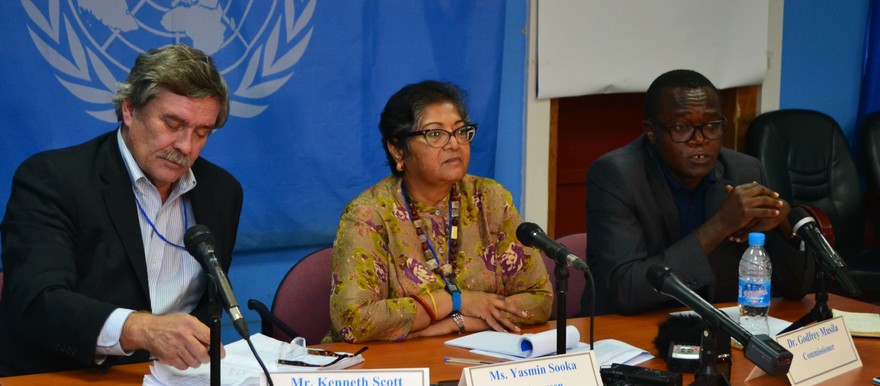A United Nations official investigating human rights violations in South Sudan says that aid groups working in remote parts of the country face potential quandaries when they may need to choose between staying silent on rights abuses or losing their access permissions by speaking out.
Yasmin Sooka is the chair of the Commission on Human Rights in South Sudan, which was established by the UN Human Rights Council by a resolution in March 2016.
She told reporters in Juba today, “I am concerned that government authorities have completely abnegated their responsibility to provide even the most basic services for their citizens. The UN and its humanitarian partners have stepped into the void and they now risk facing a dilemma about speaking out strongly over rights violations for fear that it can jeopardize humanitarian access with a result that hundreds of thousands of people could be denied food or medical care.”
Sooka continued, “We have said that the international community has as responsibility to prevent mass killings and mass atrocities and as you know the UN Special Rapporteur on genocide has himself issued a warning. As we see, several of the indicators and enabling factors are there, but that doesn’t mean that it is inevitable.”
“There are several steps that could and should be taken now to avert catastrophe. These are sanctions, asset freezes, and arms embargo and the immediate deployment of the 4,000 strong protection force in South Sudan which should not be restricted to the capital.”
The UN official also said that the failure to record war crimes will mean that the perpetrators will not be brought to justice. She also said that indifference and “normalization” of very serious crimes is “very, very dangerous.”




